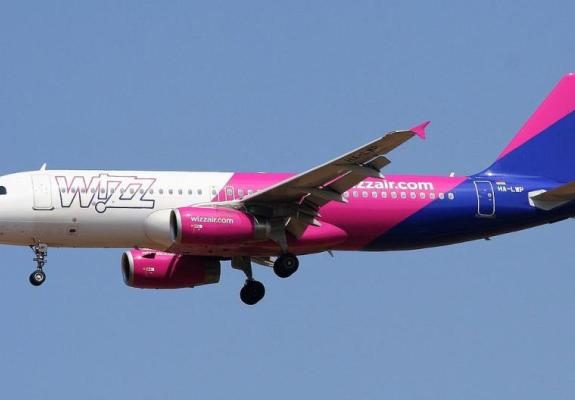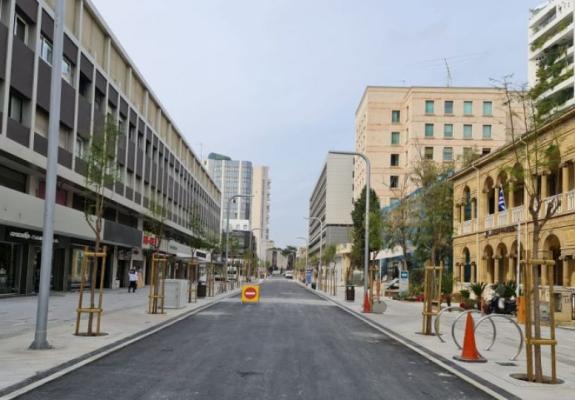The Cyprus Issue: 50 Years of Unresolved Conflict and Diplomatic Efforts
Five Decades After Turkey’s 1974 Invasion, Cyprus Remains Divided, With International Negotiations Struggling to Achieve a Sustainable Solution
Following yesterday's visit to London, President Christodoulides is heading to New York for a joint meeting (October 15) with the leader of the Turkish Cypriot community, Ersin Tatar, in the presence of the United Nations Secretary-General, Mr. António Guterres.
>>Achilleas Demetriades On the Informal Dinner in New York<<
"I am traveling to New York with the sole objective of ensuring that this trilateral meeting becomes the first step in putting the Cyprus issue back on the path of negotiations," Nikos Christodoulides stated two days ago during a commemorative event for occupied Morphou in Astromeritis.
But what is the history of negotiations on resolving the Cyprus issue between the two communities from 1974 to today?
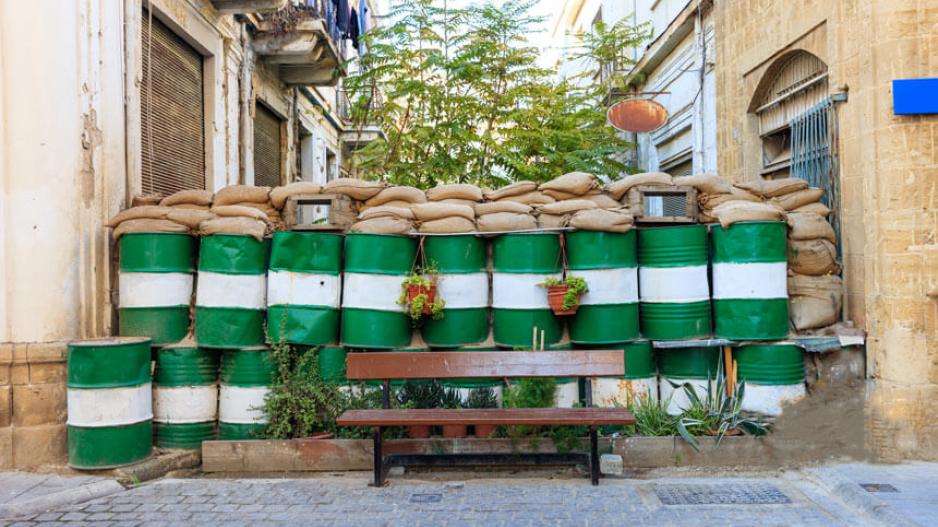
The Cyprus issue has deep historical roots, tracing back centuries and particularly during British colonial rule. However, following Turkey’s military invasion in 1974, it became a matter of international law and remains unresolved to this day.
In the five decades since "Operation Attila," numerous attempts have been made to reunify the Republic of Cyprus, but these efforts have yielded no lasting results. Negotiations have been held under the auspices of the United Nations since 1975, based on relevant Security Council resolutions and two High-Level Agreements.
According to the Greek Cypriot side, the objective is to reach a comprehensive and sustainable solution in accordance with the UN Charter and relevant resolutions. This solution envisions a bi-communal, bi-zonal federation with a single sovereignty, single citizenship, and a single international personality, ensuring political equality as defined by UN resolutions. The solution must also include the complete withdrawal of all foreign troops, the abolition of the outdated system of guarantees, and safeguard human rights and fundamental freedoms for all Cypriots.
The first significant agreement between the two sides was signed in 1977 by President Archbishop Makarios and Turkish Cypriot leader Rauf Denktash. This agreement set the framework for subsequent negotiations. Another agreement followed in 1979, between President Spyros Kyprianou and Denktash, prioritizing the return of Famagusta to its rightful residents.
In 1992, UN Secretary-General Boutros Boutros-Ghali presented a proposal known as the "Ghali Set of Ideas" for resolving the Cyprus issue. However, the Greek Cypriot side rejected it, and in 1994, a meeting between Glafcos Clerides and Denktash in New York ended without progress due to what the UN Secretary-General described as a lack of political will from the Turkish Cypriot side.
Between December 1999 and November 2000, five rounds of talks were held, but progress stalled again.
In January 2002, Clerides and Denktash resumed direct, yet ultimately fruitless, negotiations. That same year, UN Secretary-General Kofi Annan presented a comprehensive plan to both sides, known as the "Annan Plan." Revised versions of the plan were submitted in December 2002 and February 2003.
By March 2003, newly elected Cypriot President Tassos Papadopoulos and Denktash met in The Hague to discuss the possibility of putting the plan to separate referendums. Papadopoulos agreed, on the condition that the plan provided a legal framework for a functional and lasting solution and that security issues were resolved between Greece and Turkey. However, Denktash, with Turkish support, rejected the plan and refused to submit it to a referendum, leading to the collapse of talks.
Amid international criticism and Turkish Cypriot dissatisfaction, Denktash announced a partial lifting of the illegal restrictions imposed by the Turkish military since 1974, allowing limited movement between the Greek and Turkish Cypriot areas.
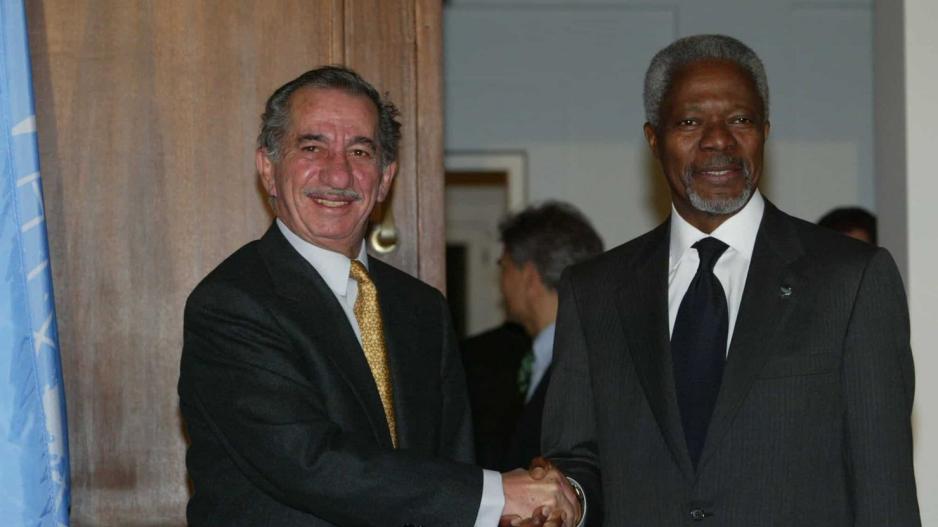
In 2004, following Kofi Annan's initiatives, both communities agreed to hold separate, simultaneous referendums. On March 31, 2004, Annan presented the final version of the plan (Annan V) to both sides. On April 24, 2004, separate referendums were held, with 64.9% of Turkish Cypriots approving the plan and 75.8% of Greek Cypriots rejecting it.
Political parties at the time were divided: the Democratic Rally and the United Democrats, led by former President Yiorgos Vasilliou, supported the plan, while AKEL, DIKO, EDEK, New Horizons, and the Ecologists opposed it. President Papadopoulos, leading the opposition, argued that the plan would dismantle the Republic of Cyprus and replace it with an unworkable entity.
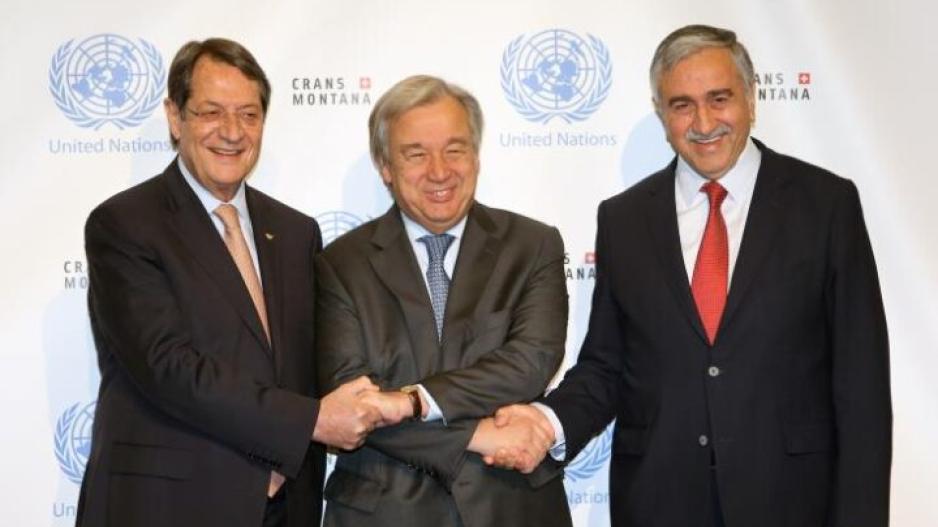
In the following years, both Papadopoulos and his successor Dimitris Christofias, along with Turkish Cypriot leader Mehmet Ali Talat, worked towards restarting direct negotiations under UN auspices. Significant developments occurred in 2008 with the opening of the Ledra Street crossing and the establishment of six working groups and seven technical committees.
Mehmet Ali Talat was succeeded by Derviş Eroğlu as the Turkish Cypriot leader in 2010. Christofias and Eroğlu held numerous meetings until July 1, 2012, when Cyprus assumed the presidency of the EU Council. During this period, the Turkish side refused to engage in talks, despite assurances from the Cypriot president that the presidency posed no obstacle.
On February 11, 2014, under UN auspices, Cypriot President Nicos Anastasiades and Eroğlu held their first official meeting, which laid the framework for renewed negotiations.
In June 2017, after three years of negotiations, UN Secretary-General António Guterres convened the Cyprus Conference in Crans-Montana, Switzerland. Participants included the Republic of Cyprus, the Turkish Cypriot side with its new leader Mustafa Akıncı (since 2015), the three guarantor powers (Greece, Turkey, and the UK), and the EU as an observer. However, the conference ended in deadlock.
On April 27–29, 2021, the UN Secretary-General convened an informal 5+1 meeting on Cyprus in Geneva, aiming to break the deadlock and restart direct negotiations. However, Turkey's position, supported by the Turkish Cypriot leadership, led to another stalemate. Moreover, on July 23, 2021, Turkey announced further illegal actions in Varosha, violating UN Security Council resolutions. These actions were condemned by the Security Council, which issued a Presidential Statement calling for the immediate reversal of these illegal measures and full compliance with the relevant resolutions, which provide for Varosha’s transfer to UN administration.




